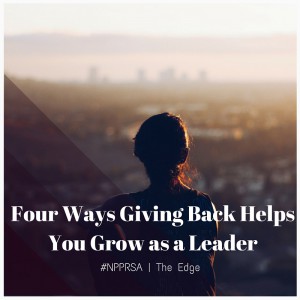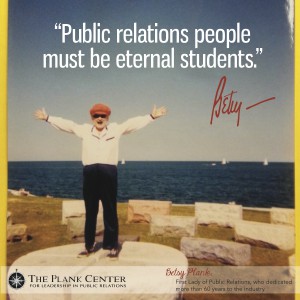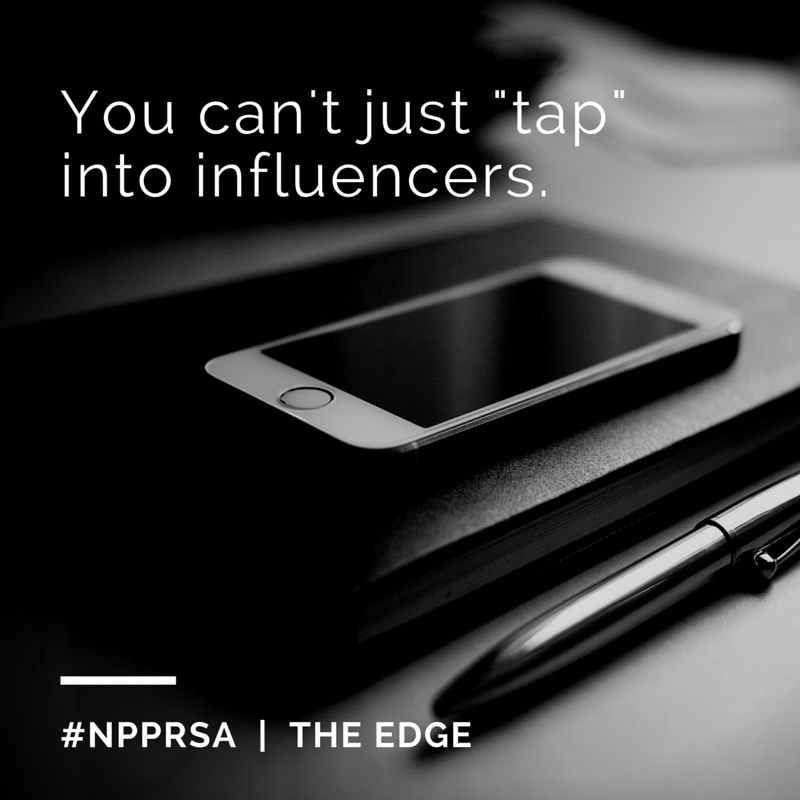 Launching your career isn’t a one-step process. It takes time and strategic planning to really narrow down both your short- and long-term goals. But thinking about these goals isn’t enough. How are you going to get there?
Launching your career isn’t a one-step process. It takes time and strategic planning to really narrow down both your short- and long-term goals. But thinking about these goals isn’t enough. How are you going to get there?
As new professionals, we need to proactively think about how we’re going to land those senior-level executive positions. It’s not going to happen tomorrow but that doesn’t mean we don’t need to take initiative now.
Yes, we’re driven and have aspirations, and we really do want to be leaders. But the important part is for all of us to take steps back and ask ourselves, why? Why do we do public relations, and why do we want to be leaders of the industry? Then, we need to focus our approach on that.
For me, the answer derives in the reason I chose public relations and my biggest motivation in the work that I do: to help people. PR gives me the capability to effect change for the causes and organizations I’m passionate about, so becoming a leader means I’ll have even more knowledge, experience and power to do so.
Looking at my career with that perspective made it easier to narrow down what I could do in addition to my day job to grow professionally while simultaneously making a difference in my community. For me, that’s using my skills to help local nonprofits and community organizations.
The agency I work for, similar to agencies many new professionals work for, works with nonprofits and other community organizations on both a client and pro-bono basis. For me, this includes participating on fundraising and networking committees, directly communicating with donors or members via newsletters and social media, and so much more. By building relationships with these clients and executing campaigns, I’ve noticed firsthand how much these organizations rely on volunteers to achieve their missions, a universal truth for all nonprofits.
As a new professional, you can make a bigger difference than you may suspect for the nonprofits and organizations in your community. In addition to feeling great about doing good work, you’ll:
Expand your network.
As PR professionals, we understand the value of relationships. And while our co-workers become our work families, it’s important to build a network throughout the community beyond the office. Volunteer positions do just that.
It can be intimidating to arrive alone to your first meeting or event, but you need to start somewhere. Before you know it, you’ll no longer feel like you’re stepping out of your comfort zone and want to start volunteering for leadership positions. Also, it’s likely you’ll meet and work with people from different industries and professions, who could then turn into friends and mentors. These relationships can last a lifetime and open the door to new opportunities and shared passions.
Become the expert.
Depending on the organization or people you’re interacting with, you could be the only PR professional in the room. So when a communications-specific question or request is brought up, all eyes turn to you. This doesn’t mean you’re expected to know the answer in a blink of an eye, but you’re expected to be able to figure it out – an important skill as PR professionals are looked to as problem solvers. As an added bonus, you’ll become more comfortable and confident speaking up or learn when to let others do the same in these situations, which can help in all aspects of your career.
Build your resume.
Volunteer-based experiences are often equally as beneficial as on-the-job experiences. Most nonprofits and community organizations run on shoestring budgets, which make successful campaigns extra impressive. The ability to articulate your role in a successful project can speak volumes to your impact and leadership skills. Through volunteering you’ll also get hands-on experience with industries you may not typically be involved with, which can help round you out professionally or let you explore new interests if you’re not super passionate about the PR work you’re doing from 9 a.m. to 5 p.m.
Learn new approaches and skills.
You’ll notice there are similar practices utilized among different organizations, but you’ll also pick up on differences. An organization may use a strategy or tool you’ve never explored. Each new skill you learn can enhance your value and help set you apart from peers, vital steps for career growth. And as you gain new skills and ideas, you’ll be able to contribute a different perspective to the meetings you attend – positioning yourself as a leader.
It’s never too early to get involved – whether you’re a college freshman or seasoned professional – take some time to consider how you can give back and become a better leader.
What types of volunteer roles do you have in the community? What are other career benefits you’ve noticed from giving back?
 Hannah Leibinger is an account strategist at Piper & Gold Public Relations, a boutique agency in Lansing, Michigan, that specializes in government, nonprofit and small business public relations. In the Lansing community, she serves as the chair of communications for Grand River Connection, new professionals co-chair for the Central Michigan Chapter of PRSA, social media coordinator for Giving Tuesday Lansing and a member of the Old Town Commercial Association business development committee. Connect with her on Twitter (@hleibinger) and LinkedIn.
Hannah Leibinger is an account strategist at Piper & Gold Public Relations, a boutique agency in Lansing, Michigan, that specializes in government, nonprofit and small business public relations. In the Lansing community, she serves as the chair of communications for Grand River Connection, new professionals co-chair for the Central Michigan Chapter of PRSA, social media coordinator for Giving Tuesday Lansing and a member of the Old Town Commercial Association business development committee. Connect with her on Twitter (@hleibinger) and LinkedIn.







